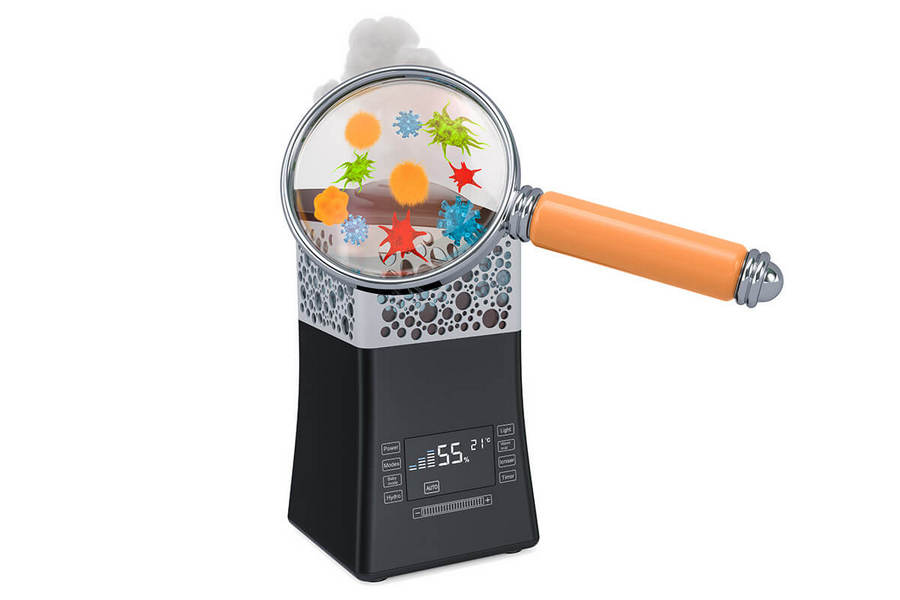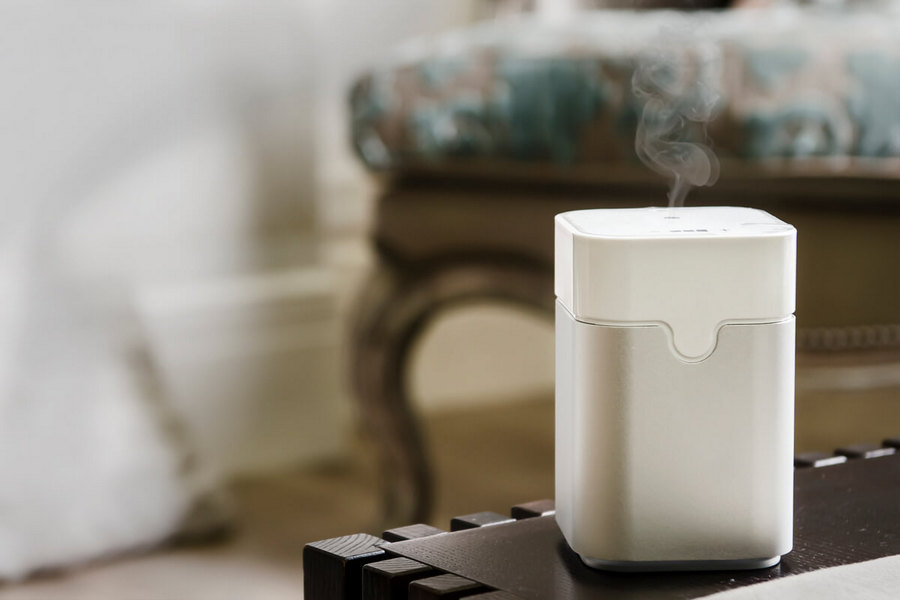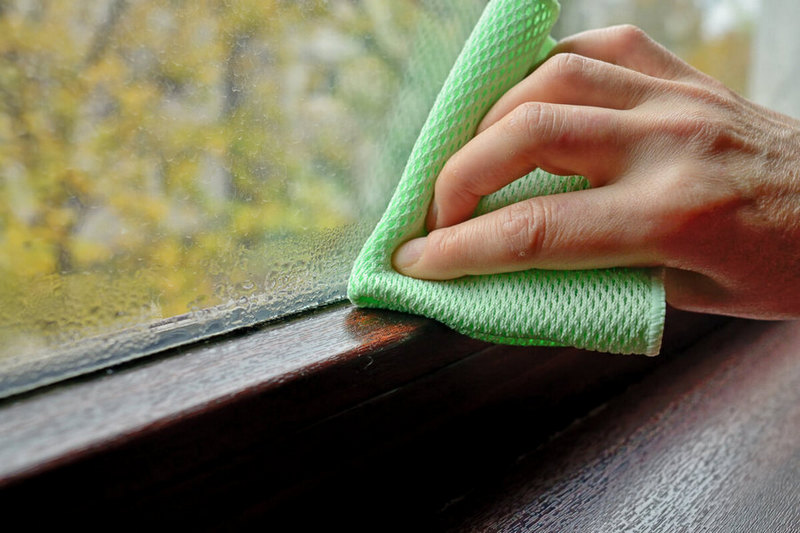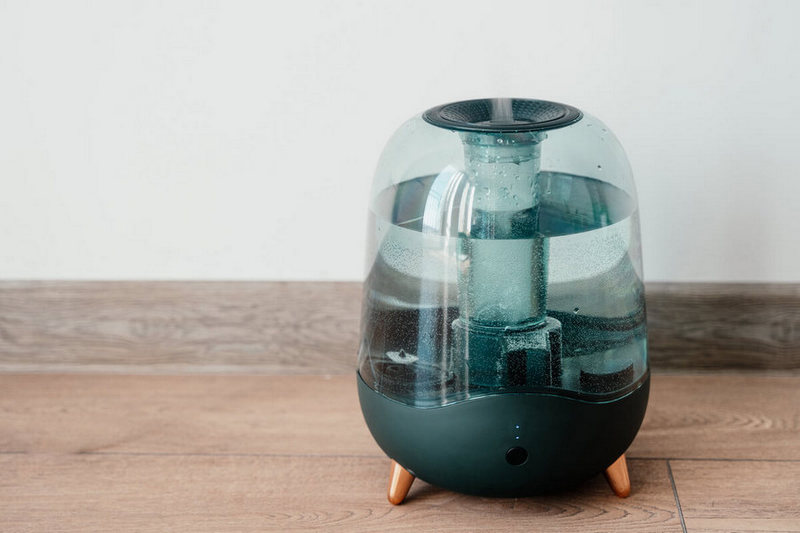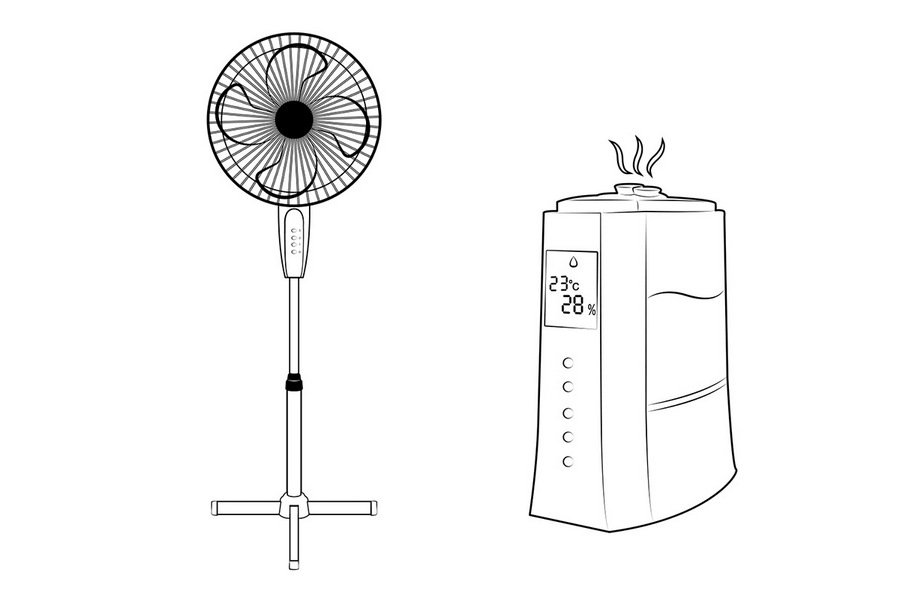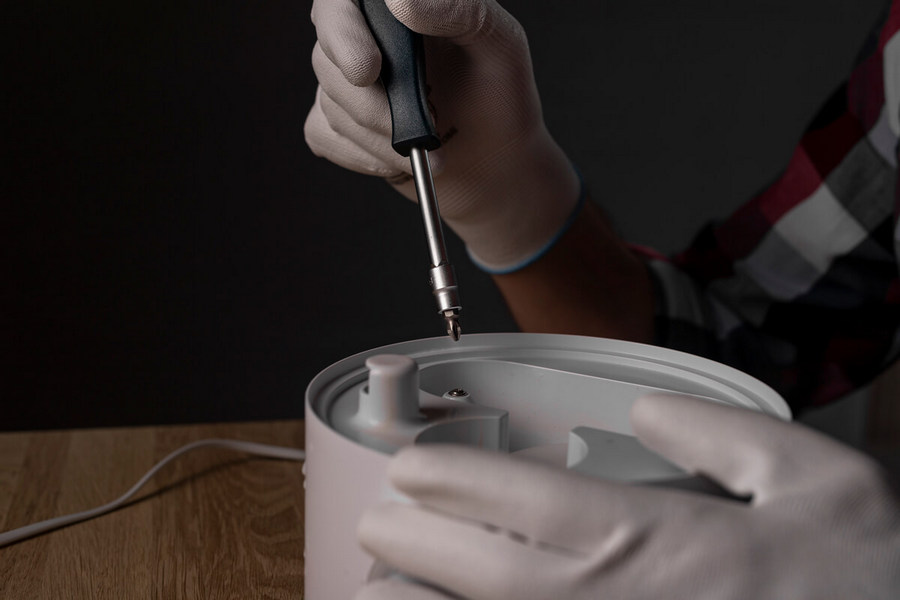There are many great reasons to use a humidifier: they can provide soothing moisture, help fight germs, reduce snoring, and help keep your home warm in the winter. But, while they have many advantages, you may wonder if humidifiers can cause mold.
The answer is yes, they can, but there’s a lot more you need to know. Here we’ll look at why it happens and what you can do to prevent it. By the end, you’ll have all the info you need. Let’s get started!
Why Do Humidifiers Cause Mold?
Many people use humidifiers to improve the air quality in their homes, but did you know that a dirty humidifier can breed mold? Mold thrives in damp environments, so it’s no surprise that humidifiers are often the source of mold growth.
There are a few reasons for this. First, humidifiers add moisture to the air, which can encourage the growth of mold spores. Second, humidifiers can also create wet spots on walls, ceilings, and carpets, providing an ideal breeding ground for mold.
Finally, humidifiers can spread mold spores throughout the house, increasing the chances of an infestation. This is especially true if you move your humidifier into different rooms throughout your house. If you use a humidifier, clean it regularly to prevent mold growth. Check out our post on how to clean pink mold in a humidifier.
It would help if you also looked for signs of mold, such as visible growth or a musty smell. If you notice any of these signs, take action immediately to mitigate the problem.
If your home already suffers from mold growth, then a humidifier can make the mold worse. While that’s true, there are ways to use your humidifier to help prevent mold growth.
Related: Best water for a humidifier that is least likely to contribute to mold growth
What Causes Mold Growth in a Home?
Mold is a fungus that grows in filaments and reproduces by releasing spores into the air. While mold is often associated with damp, musty basements, it can grow anywhere there is both moisture and organic material.
In addition to causing damage to building materials, mold can pose a severe health risk, particularly for people with allergies or asthma. These spores are naturally in the air, and they can multiply when they attach to an organic surface.
A common issue is to find mold growth in painted walls. Many paints contain organic compounds, which often allow mild to thrive. If mold grows in your humidifier, it can release its spores into the air, worsening the problem.
Read also: Handheld devices to detect mold in walls
Signs Your Humidifier is Breeding Mold Spores
If you live in an area with low humidity, you may use a humidifier to add moisture to the air. While humidifiers can have many benefits, they can also breed mold spores if they are not properly maintained. Here are some signs that your humidifier may be generating mold:
- You see mold or mildew on the humidifier
- There is a musty smell
- Allergies or respiratory problems have been triggered since using the humidifier
If you notice any of these signs, it’s essential to clean your humidifier immediately to prevent the spread of mold spores. To clean a humidifier, remove it from its base and rinse it with warm water.
Once it is clean, dry it thoroughly before putting it back together. With proper care, your humidifier will continue to provide you with relief from dry air.
How to Use a Humidifier to Prevent Mold Growth
There are a few things to keep in mind when using a humidifier to prevent mold growth. First, make sure that you’re not over-humidifying the air. Excessive moisture can promote mold growth, so aim for a relative humidity level of around 30-50%.
Be sure to clean your humidifier regularly according to the manufacturer’s instructions. Otherwise, it could become a breeding ground for the mold itself. Let’s take a look at other actions you can take.
Hydrogen Peroxide
One way to help prevent mold growth is to add hydrogen peroxide to the water. The oxygen in the hydrogen peroxide helps to kill mold spores, and since it is a natural disinfectant, it won’t harm your family or pets.
Hydrogen peroxide is inexpensive and easy to find at any drug store. So, next time you fill up your humidifier, add a little hydrogen peroxide to help prevent mold growth.
White Vinegar
Mold and bacteria can grow in the water tank, and when the humidifier disperses these microorganisms into the air, they can cause respiratory problems.
The acetic acid in the vinegar helps to kill mold and bacteria, and it also helps to prevent mineral deposits from building up in the tank. As a result, adding a few cups of white vinegar to your humidifier will help not only to keep the air in your home clean and healthy but also maintains the humidifier.
You will also want to check out our post on running a humidifier with vinegar for sinus congestion.
Humidifier Tablets
These tablet release minerals into the water, which help inhibit mold and bacteria growth. In addition, the tablets help keep the water clean, reducing the risk that contaminants will be released into the air. Just add one tablet every time you fill the tank up.
Teatree Oil
Adding a few drops of tea tree oil to the humidifier water will help kill mold spores and prevent them from multiplying. In addition, tea tree oil has a refreshing scent that will help improve your home’s smell.
All you need to do is add around five drops to the tank. There is another additional benefit here too. Teatree oil has been known to help with respiratory issues, which can make your humidifier even more effective.
Learn our tee tree oil recipe for killing mold.
The Bottom Line
Many people use humidifiers to increase the humidity in their homes, especially during the winter when the air is dry. While humidifiers can be beneficial, they can also cause mold growth if they are not used properly.
To prevent this, you need to ensure that you’re not over-humidifying your home and regularly cleaning your device. You can even add something like tea tree oil to kill the spores while providing a pleasant scent. If you follow the advice, you can have all the benefits of a humidifier without causing mold growth.

